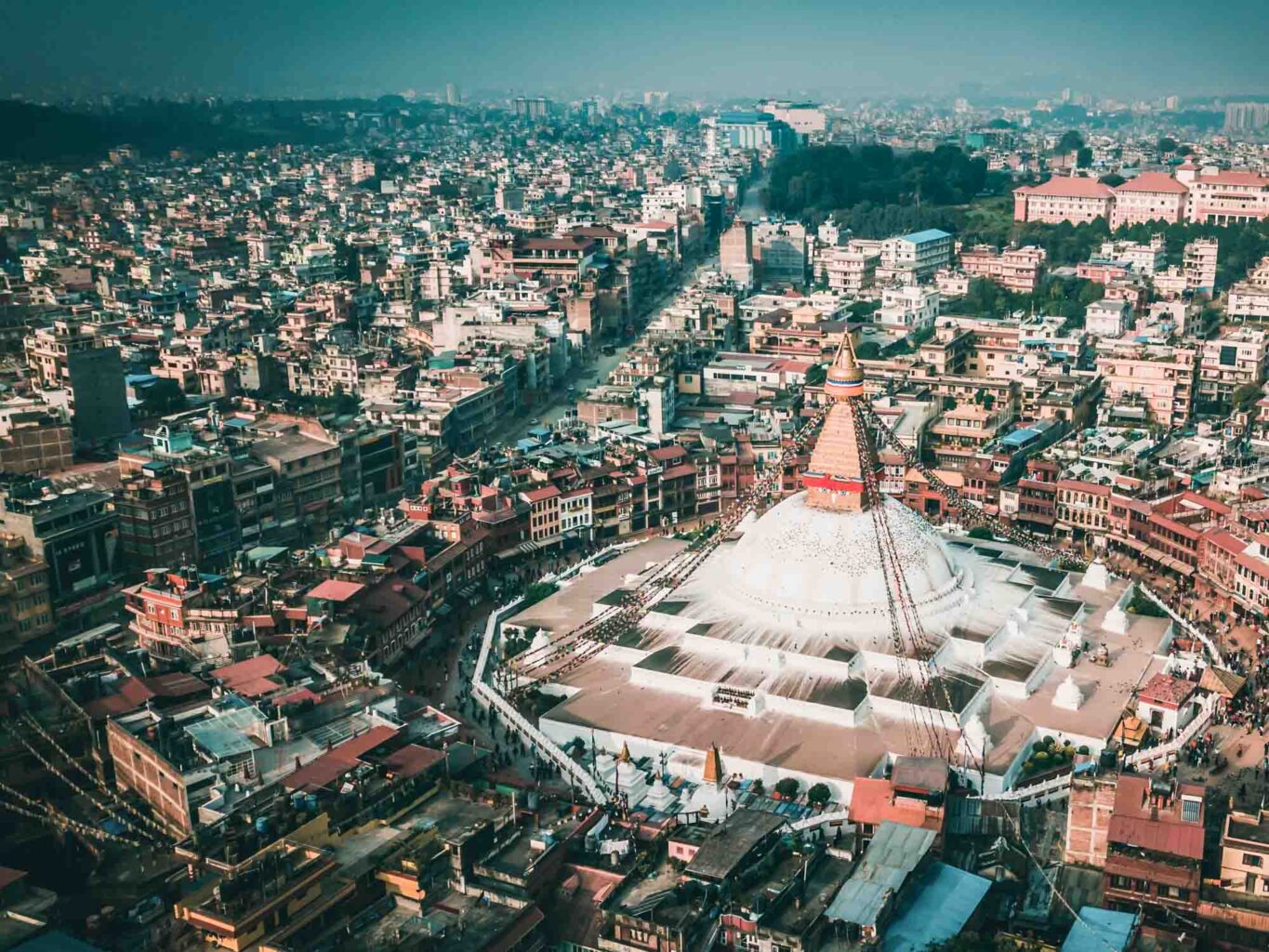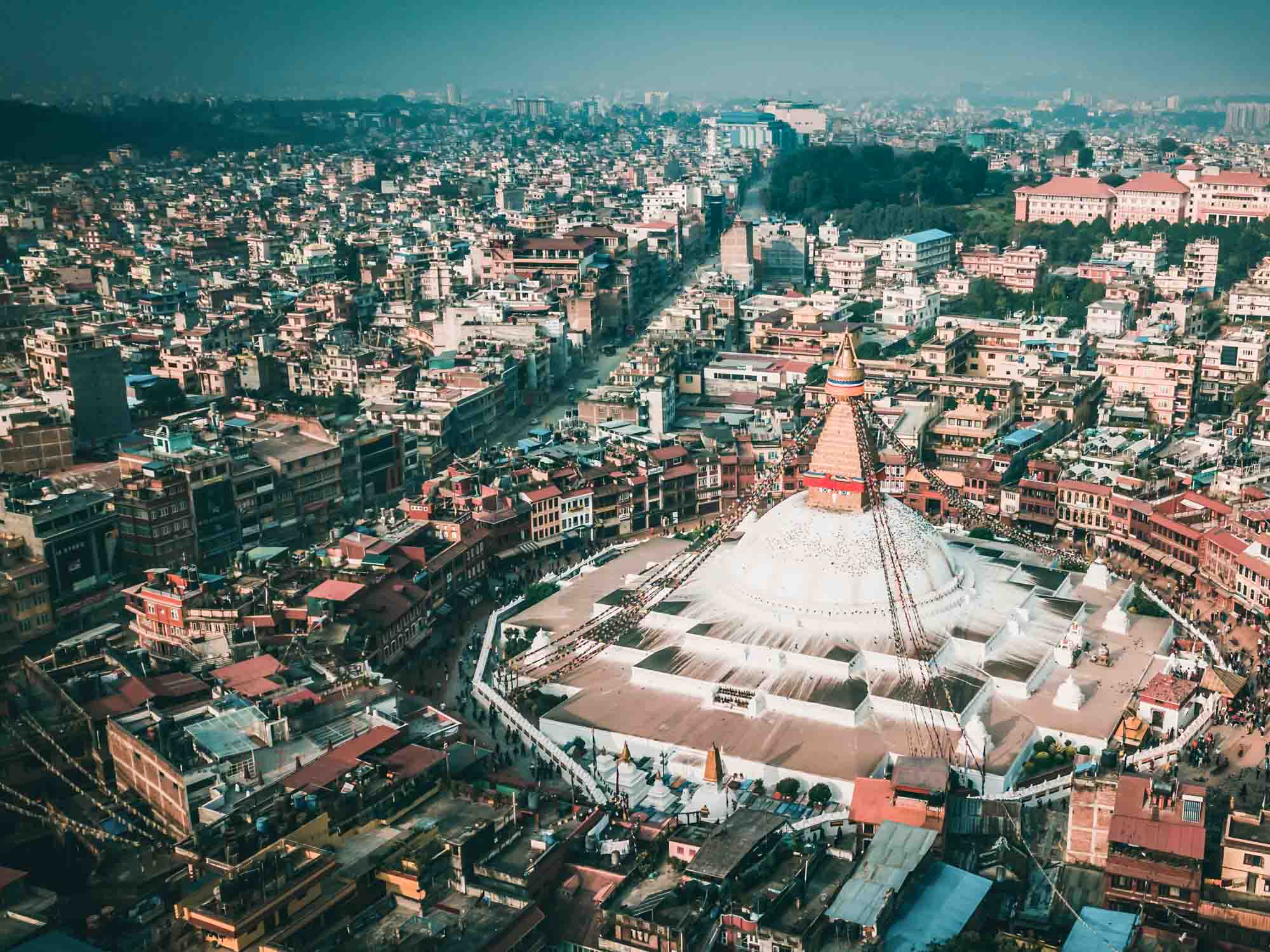As a Chinese proverb says, ‹It is better to light a candle than curse the darkness.› This is exactly what the members of the World Goetheanum Association Asia chose to do at this event’s inaugural session.
When Chinese citizens were unable to travel abroad and those from other nations still had difficulties doing so, a hybrid conference was the best alternative to a physical gathering for the first-ever WGA Asia Forum, which happened from September 23rd to 25th, 2022. Hybrid meant that the backbone of the three-day event was scheduled on Zoom, but small groups of participants met face-to-face in many different locations. This way, there were not only participants from as diverse countries as India, Nepal, Bangladesh, Pakistan, Vietnam, China, Japan, Singapore, Austria, Philippines, U.K., Germany, Korea, Malaysia, Hong Kong, Russia, Romania, and Switzerland, but there were personal meetings in places like Chengdu, Beijing, Puerto Princesa, Cebu, Hyderabad, and Kathmandu. The two and a half days were filled with learning from inspiring people from across the world. Besides the accomplished speakers, this conference had a very efficient team working behind the scenes.
The First Day
On Friday, the 23rd of September, the day of the equinox, Maximilian Moser from Austria gave a brilliant presentation on the ‹Scientific findings on the balance of the human being, the earth, and the cosmos›. He introduced his work on health support, from mundane places such as construction sites to those on space travel. Time is invisible, therefore it has taken a long time until we have become aware of biological rhythms in Western medicine. Whereas the spacial aspects of human anatomy were described precisely already in the 16th century by Leonardo da Vinci and Andrea Vesalius, the time-based anatomy of our organism – after having been pointed out by Rudolf Steiner – was only started to be seriously considered in the 1950s. In 2017, the first Nobel Prize for Medicine was given to an example of chronobiological research, as medicine has realized its importance for human health.

It is a big achievement of Asian medicine to have already described the organ clock several thousand years ago. Since 1992, Moser´s Human Research Institute in Austria is working to visualize the body rhythms in the so-called ChronoCardiogram, a scientific variant of the Chinese organ clock. They have since been able to apply the method to many questions of human health, prevention, and well-being. Its contributions span from the Russian Space Program to a project preventing accidents on construction sites.
The lecture was given on the day of the equinox when day and night have the same length all over the planet when Yin and Yang are in balance. How is the balance of the human being connected with the balance of the earth and the whole cosmos?
The Second Day
The next day there were three sessions. The morning started with Agriculture, Education, and Health and two panelists – Shen Li from the College of Education and Administration of the Normal University in Beijing, who heads the Biodynamic work in China. His imaginative contribution conveyed an understanding of the necessity and unavoidability of organic agriculture and how to integrate children and youth into it.
Arifa Rafee worked as a Network Engineer, Bank officer, and has become an agripreneur after training in Biodynamic Farming. She is actively engaged in the day-to-day operation of farms, along with marketing her own produce. She is presently the Treasurer of the Biodynamic Association of India. Arifa shared her experiences involving children on her farm. Thriftiness, connection with animals and nature, and consciousness regarding environmental conservation were acquired by children without any formal instruction, just by being involved in the activities of the farm. This has helped them a lot in their adult life.
The afternoon session on Enterprise Assessment was presented by Ricardo Pereira.
He is currently a researcher at Ruskin Mill Trust undertaking a Ph.D. (Coventry University, UK) on the topic of Community Supported Agriculture and the de-commodification of agriculture, based on the Threefold Social impulse. The session was the culmination of a months-long process in the WGA Asia exploring how to start the actual work of cooperation and association. Several enterprises had signed up for this process and three have been chosen to be featured in the Forum, with their potentials and challenges. The efficacy of the WGA Asia will be proven if this process continues beyond the Forum. Are we open to sharing our wounds and failures? Are we open to accepting help from peers? Are we open to transforming challenges into abilities, bad into good?
Bernard Hanel from Germany, who started the World Child Forum – which hopes to be on par with the World Economic Forum in Davos – had all of us rooting for his endeavour. Obviously, children and youth, as the actual carriers of the future, have been as much overlooked by planners, as much as the child within all of us that wants to play and be considered. Hanel founded the Forum to focus on a liveable future for the children of today. He introduced the initiative and called for our cooperation. He spoke at length about the importance of having children at the centre, his plans for the World Child Forum, and ways to enlist support from across the globe, ending in a lively and exciting conversation.
The Third Day
The final day began with a shared morning session between Korea and Japan. Konomi and Ben Campbell own a 110-hectare Biodynamic farm in Japan. They shared their amazing experience of starting from zero and running a CSA farm of such a huge size. Their photographs were so inspiring that instantly, the chat box had many inquiries on when one could visit. They spoke about apprentices working there, running the farm, and marketing the products. All in all, it was a presentation that would motivate many to take up farming or work on farms.
Jiyoung Moon is a General Manager of HANSALIM Cooperative Federation in Korea, the world’s largest farm-consumer cooperative. Even in a virtual forum, one could sense the sharpness, capability, and goodness of this one-woman army! Hats off to her. She spoke about advocacy campaigns for pure food, a community kitchen in Korea, and farmer-consumer liaison facilitated by the Hansalim cooperative. Her subtle humor and sincerity had everyone completely engrossed and touched.
Converting
After many of the participants met in the face-to-face hubs, did eurythmy, painted, walks, or just discussed the inputs so far, the final sessions of the Forum started at 16:00 Manila time with the experienced and kind Masaya Koriyama from Japan. Having helped in government ranks in abolishing nuclear power in Japan after the Fukushima disaster, he came back to agriculture to pursue his long-term goal of converting farming to organic. On the way there, while engaging in responsible posts in decisive boards, he is also supporting efforts to bring organic food to schools as much as possible. He shared his experiences in making organic food part of school meals and enlisting the support of mothers in bringing pure food to children. It was wonderful to see how mothers even from humble backgrounds could make a significant contribution towards bringing pure food to their own and other children.
The end of the Forum was prepared in small groups in virtual rooms. Each and every participant came up with an intention and set up a goal to be achieved in the near future. There were simple and lofty goals, but it is clear that each participant carried back a mission to accomplish, irrespective of scale. There were also many others who were not speakers at the conference but were well-accomplished in their own right. So much learning and sharing. So many people worked behind the scenes to translate, moderate, plan, and regulate this amazing hybrid event happening simultaneously across the globe.
There were 55 to 60 participants from across the world on the 2nd and 3rd days of the conference. Such sharing of inspiring success stories, examples of trials faced and overcome, and the fruits of hard work – are indeed what we need to keep us motivated to move ahead with enthusiasm and determination.













